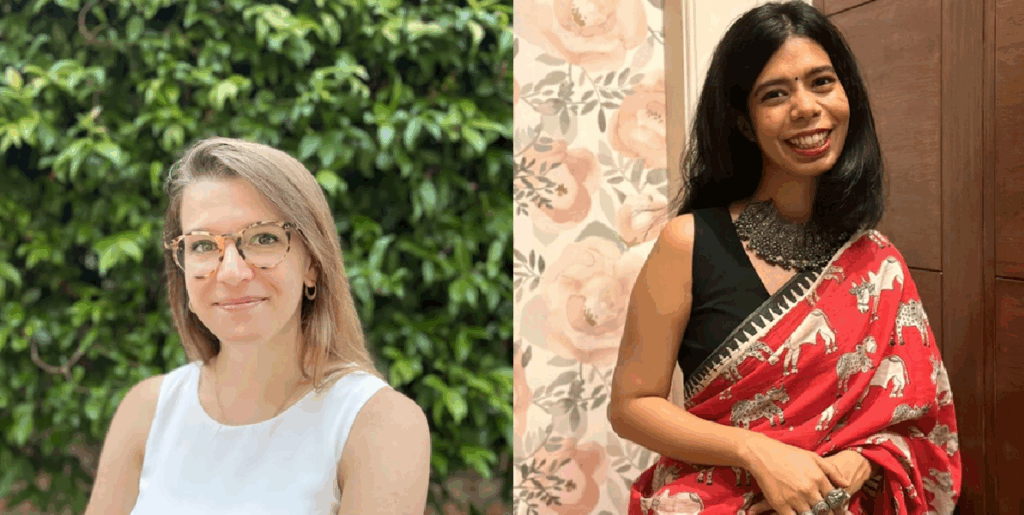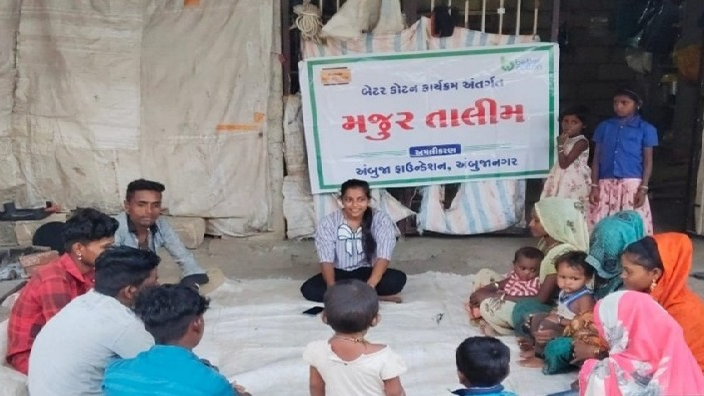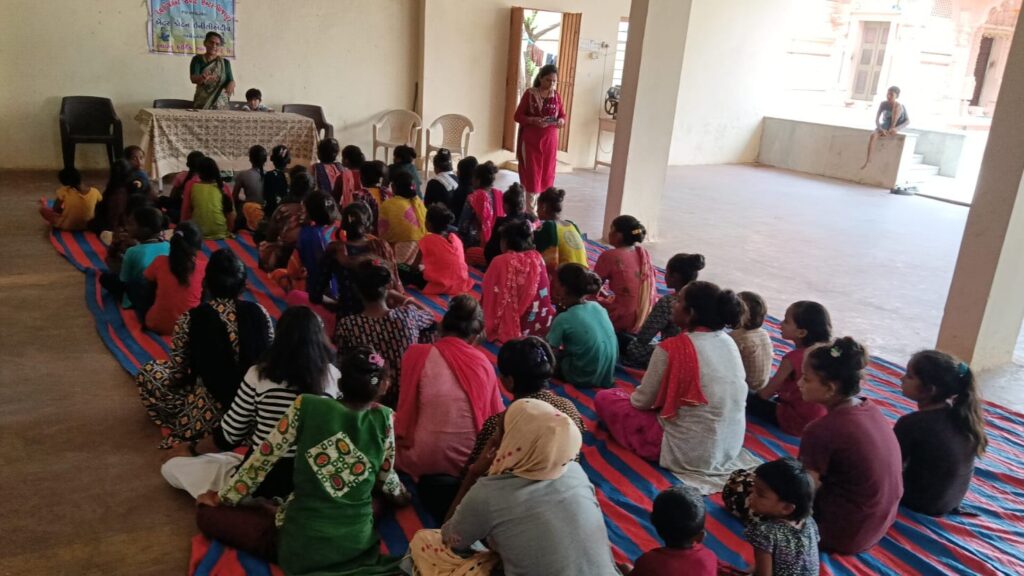By Alessandra Barbarewicz, Decent Work Coordinator, and Pallavi Bhati, Senior Programme Coordinator at the Better Cotton Initiative (BCI)


Cotton farmers and farm workers are usually also parents and caregivers with families to support – especially women, who make up a significant share of the workforce in many cotton-producing regions. This raises an important question: when parents go to work, who looks after their children?
When no childcare facilities are available, parents bring their children to the fields, unintentionally exposing them to health and safety risks such as chemicals, sharp tools, and machinery.
In some cases, children also assist with farm tasks that are not suitable for their age, increasing the risk of harm and perpetuating cycles of vulnerability. Often, older siblings, particularly girls, end up staying home to care for younger children. This leads to missed school days and, in many cases, complete withdrawal from education.
To address these challenges, Programme Partners of the Better Cotton Initiative implement actions that help children access education and stay safe. In this blog, we spotlight two projects from partners in India that are making a difference in safeguarding children’s rights.
Ensuring education for children from migrant families
Ambuja Foundation, Nana Kotda, Gujarat, India
Every year, families from the tribal belts of Gujarat (areas with significant concentrations of tribal populations) and neighbouring states migrate to Nana Kotda for seasonal farm work. While their parents work in the fields, children face significant challenges.
Those under the age of six often remain outside the schooling system, while older children are left at home or drop out midway. Without proper childcare or educational support, many are at risk of becoming child labourers. Dropout rates among migrant children are consistently higher than those of local students, underscoring the urgent need for inclusion in education and safety nets.
Our partner the Ambuja Foundation has been collaborating with village leaders and teachers to create a holistic response.


The project has two key components:
- Engaging the community, and in particular migrant families, to understand their needs and concerns, while also raising awareness on the long-term value of education.
- Building strong partnerships with local schools to facilitate admissions for migrant children who accompany their parents for only a short seasonal period. Because of this limited stay, schools often hesitate to provide free textbooks and mid-day meals. The Partner team worked closely with government schools to address these barriers, while teachers offered tailored courses to help children catch up.
Enrolment drives, home visits, and parent-teacher meetings strengthened trust and participation. All staff involved were also sensitised about migrant children’s needs, dialect differences, and cultural backgrounds. A teacher shared: “At first, parents were hesitant. Today they proudly send their children to school and even join school events. Education is starting to feel like a community aspiration.”
The impact has been transformative. In just two years, 15 migrant children have been enrolled, schools have embraced cultural diversity, and parents now actively participate in school committees. Most importantly, the mindset within migrant communities has shifted: education is no longer seen as a loss of labour but as an investment in their children’s future. What began as a small initiative is now paving the way for sustainable educational inclusion for vulnerable children in Nana Kotda.
Women helping women: childcare gives families the freedom to work without worry


Arvind Mills and SEST, Dhasa, Gujarat, India
In Dhasa, where opportunities for women are often scarce, a local Producer Unit (PU) group led by Bhavikaben Chauhan is redefining what inclusive development looks like. Under her leadership, the PU – comprising 4,600 farmers – has gone beyond agricultural training to address a critical gap for farming families: childcare.
With support from Arvind Mills and SEST, the PU established a Childcare Development Centre that provides a safe, caring environment for around 20 children of farmers and workers. This initiative enables parents to work in the fields without worrying about their children’s safety, while ensuring that the youngest members of the community are nurtured and protected. The facility also provides a nutritious breakfast, stationary and incorporates specially designed games that promote engagement and learning, helping children develop social and cognitive skills in a playful and safe environment and enabling regular attendance.
The childcare facility is part of a broader effort to empower women and strengthen social support systems. Tackling child labour – prevalent in most agricultural contexts – is a fundamental part of BCI’s Decent Work Strategy and is reflected in the tireless efforts of our Programme Partners working on the forefront of this challenge in partnerships with communities, schools and governments. Ensuring that children have access to education and are not engaged in work that is harmful or interferes with their schooling is essential to protecting their rights and future potential.
Learn more about our Decent Work Strategy to 2030 by following this link, and follow us on LinkedIn and Instagram to stay updated on our latest initiatives.







































